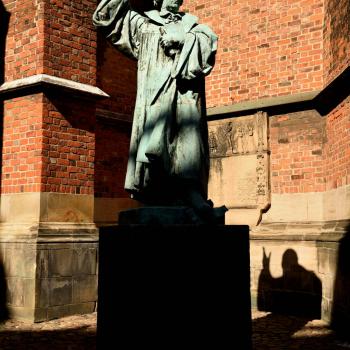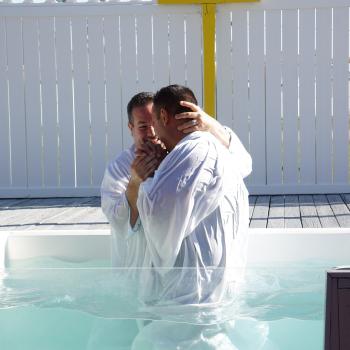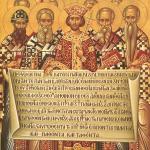Washington D.C., May 27, 2016 / 03:02 am (CNA/EWTN News).- Earlier this month, a report from Gizmodo dropped the equivalent of a social media bomb – several former Facebook employees said the company routinely suppressed conservative news in the social media giant's “trending news” section. These former Facebook news curators said they were sometimes instructed to insert stories into the “trending” section that had not earned enough attention to be a trending topic, or that they had the freedom to “blacklist” topics that they didn’t want to appear in the section, meaning that the section was not organically curated by the interests of other Facebook users, contrary to popular thought. And since the majority of news curators at Facebook are 20 and 30-something Ivy League graduates who skew left-of-center politically: “I believe it had a chilling effect on conservative news,” one former curator told Gizmodo. Although the former curators did not say whether or not the social media network also suppressed news from religious outlets and or with religious topics, some Catholic leaders think that faith groups could have been inadvertently targeted in the news selection process. Ashley McGuire, a Senior Fellow with The Catholic Association, said the news is troubling because people’s religious beliefs often inform their political views. “Seeing as faith certainly informs the political views of many, Facebook's censorship will have religious implications for sure,” she told CNA. And because the alleged censorship targeted conservative news, it may have also targeted religious news. The Republican party skews not just right of center, but more religious: a recent Gallup study of more than 17,000 Republicans found that overall, 50 percent of the GOP identify themselves as highly religious, which is above the national average of 40 percent. While a 2015 study from Pew Research Center shows that among the left-leaning Democratic party, more party members than ever describe themselves as religiously unaffiliated, representing a larger share of Democratic voters than any other religious denomination. “Imagine all the Christians whose faith informs their pro-life views, for example, and their passion for the issue,” McQuire said. “Have those voices been deleted or pushed out of sight?” It's possible. When it comes to abortion, a pro-life view is more widely held by Republicans and conservatives than by their left-leaning counterparts: 59 percent of Republicans say abortion should be illegal in all or most cases, while 70 percent of Democrats say abortion should be legal in at least most cases. “Pope Francis reminds us that, 'Politics according to the Social Doctrine of the Church, is one of the highest forms of charity, because it serves the common good,'” McQuire said. “Religion plays an important role in politics, and in censoring half of Americans, Facebook is also in a sense, censoring out the religious beliefs that inform their politics.” When the news broke of the biased trending topics, Facebook CEO Mark Zuckerberg and other leadership in the company scrambled to deal with the fallout, which included the U.S. Senate Commerce Committee (which has jurisdiction over media and consumer protection issues, and internet communication) sending a letter to Zuckerberg, demanding answers to their questions about the site's news selection process. Zuckerburg announced that he would be meeting with conservative politicians and leaders to listen to their questions and concerns. The company also announced on Monday of this week, after meeting with Chairman of the U.S. Senate Commerce Committee John Thune, that although an internal probe of the website’s news selection process could not prove the alleged liberal bias, it was nevertheless making changes to the way trending topics are selected. In a blog post, the social media network explained that these changes would include the elimination of a top-ten list of approved websites, more training and clearer guidelines to help human editors avoid ideological or political bias, and more robust review procedures. “...suppressing political content or preventing people from seeing what matters most to them is directly contrary to our mission and our business objectives and the allegations troubled us deeply,” Colin Stretch, Facebook general counsel, wrote in the post. “We are proud of the platform and community we have created, and it is important to us that Facebook continues to be a platform for all ideas.” Christopher White is the Director of CatholicVoices in the U.S., an organization that provides media training for Catholics through workshops, trainings, and media consulting. White said the he had not personally experienced or noticed a liberal or political bias on Facebook, and said that he would remind Catholics that social media is still one of the best ways to engage in the New Evangelization. “Just think about Pope Francis, who is the most popular figure on Twitter and Instagram,” White said. “Those aren't just press plays, they're actual message-sharing devices, and I think that’s something that we can celebrate. As Catholics we can use these platforms as a means to witness and to share what is and should be the joy that we have as Catholics,” he said. The media can also play an important role by holding the Church accountable, White noted, such as in the case of the sex abuse scandal uncovered by reporters from The Boston Globe. “One of the things that many commentators were quick to say (after the sex abuse scandal) is that the media did the Church a great service, and so there are times in which the media is really an ally for us, and they have a right to keep us accountable,” White said. However, White added, Catholics also have a duty to speak up when the Church is inaccurately or falsely misrepresented, and the media has a duty to remain an open marketplace of ideas. “These (social networks) are, in a sense, marketplaces in a sense for an exchange of ideas,” he said. “And no one should be targeted – conservative, progressive, Christian or secular – no individual group should be targeted.”Photo credit: www.shutterstock.com. Read more




















